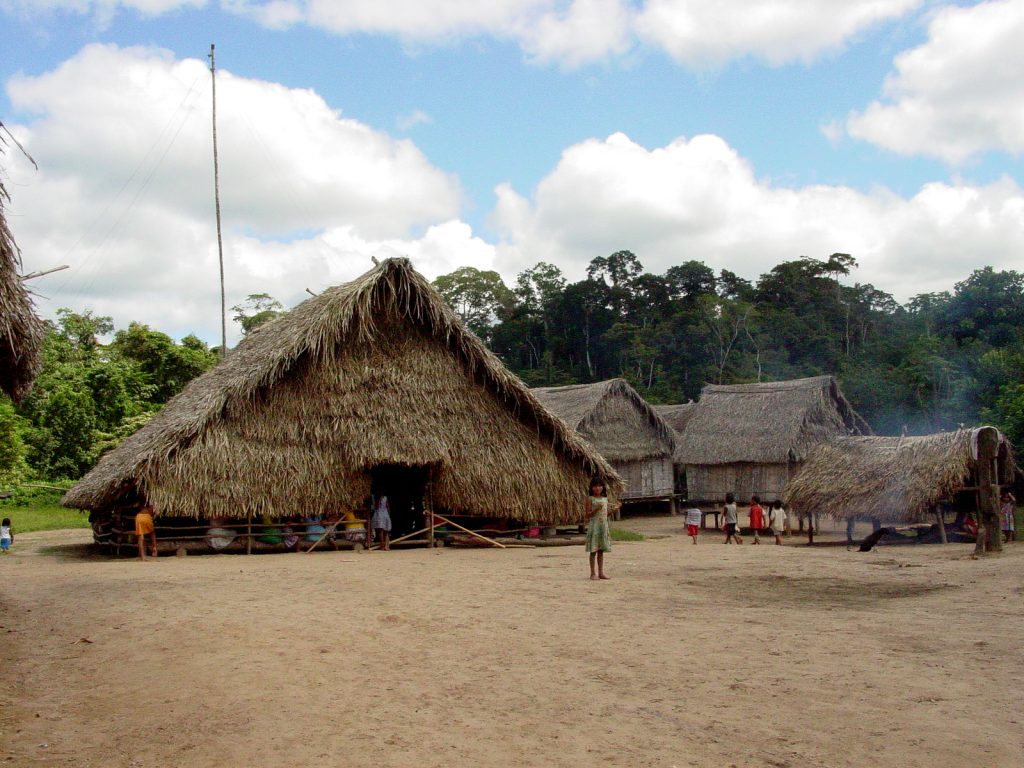Technology and the Huni Kuin
At the beginning of the 20th century, the Huni Kuin (or Kaxinawá) suffered violent attacks from rubber tappers, so their relations with white men were not peaceful until the mid-1950s. Then, the Huni Kuin began to maintain a relationship of exchange economy with the non-indigenous society of Brazil and Peru.
The Huni Kuin, who are great hunters, obtained skins, feathers and seeds and other treasures collected in the mysterious Amazon jungle in exchange for manufactured tools that made their lives easier in basic tasks. Over time, they stopped using their arrows and began to use rifles for hunting, so they depended on the cartridges sold to them by the western world.
The Huni Kuin thus lost their hunting autonomy, because the new generations were not instructed in the making of arrows or in learning traditional hunting. When cartridge prices rose, they began to engage in cattle and pig farming, which drastically changed their way of life.

However, there are very diverse communities in Huni Kuin, and in fact most of them still hunt, even with firearms, which simply helps with the arduous and dangerous task of hunters.
They also tend to have, even in the smallest communities, some basic comforts that make life easier in a very basic way without threatening their way of life in an absolute way. For example, they usually have a community refrigerator where they store the meat that is not consumed at the time, as well as some vegetables.
They also tend to have some tools that make farming easier, such as an electric saw, or a lawnmower. They usually have electricity from solar panels, although this does not mean that each hut has light, but that electricity is used for common things.
Normally, a gasoline generator provides light and internet to the entire community for one hour a day. This varies greatly from one community to another.
There are communities that have electricity all day long, private mobile phones, there are Huni Kuin who have social networks where they spread their culture and show their villages, there are communities that offer accommodation to tourists in exchange for large amounts of money, while other Huni Kuin communities remain more isolated and do not need to enter the economic circle through currency but rather through exchange.
The use of social networks has facilitated, above all, their visibility throughout the planet, making their songs and prayers accessible to everyone.
A couple of decades ago, three young Huni Kuin leaders arrived in Rio de Janeiro with the idea of doing ceremonies outside their native area for the first time. Today many leaders travel to the five continents to offer rituals, so they know perfectly the Western way of life, with its technologies and modernities.




